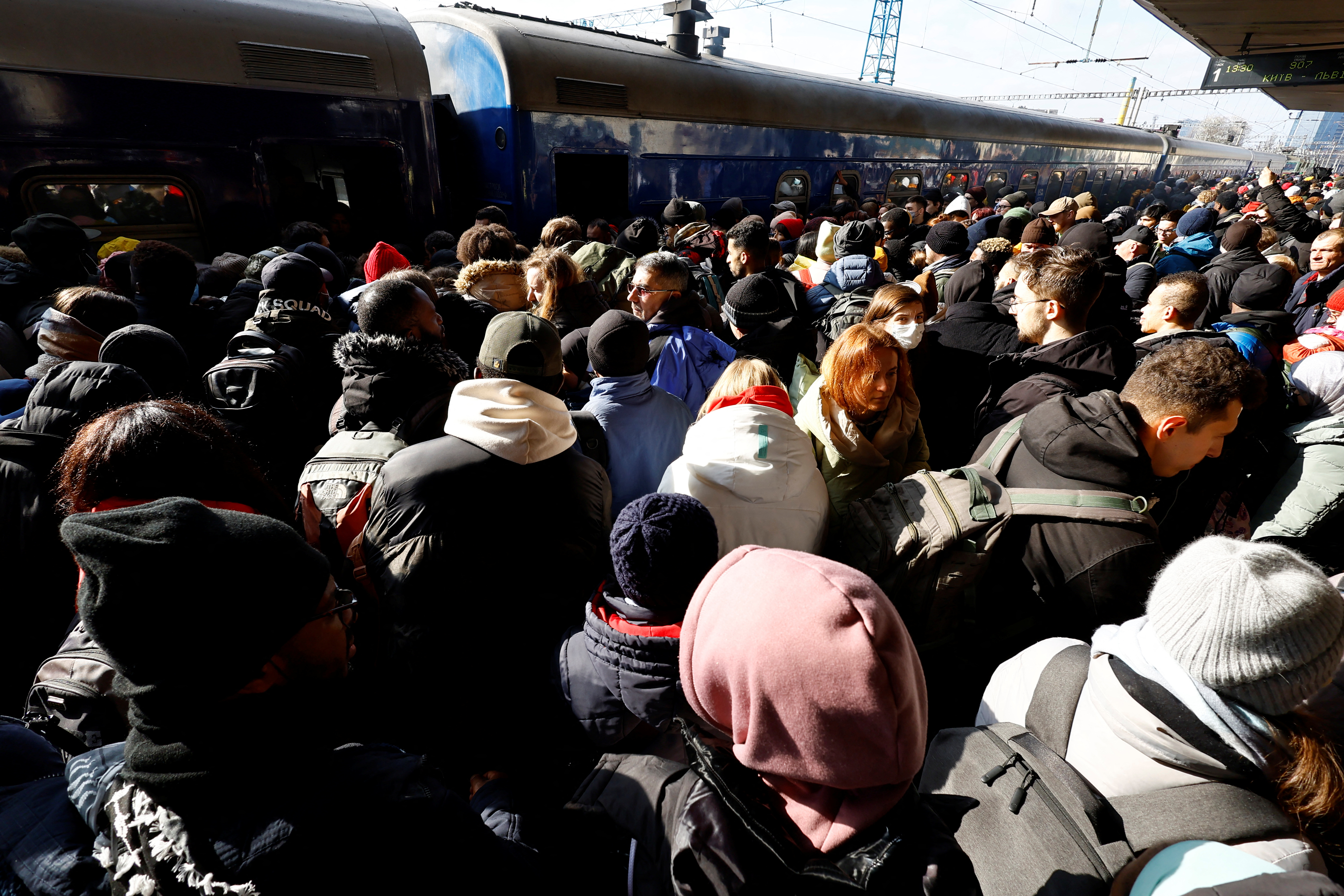
Lolade Lawal’s life has been turned upside down in a way she never imagined.
The third-year medical student from Nigeria is coming to terms with the effects of Russia’s invasion of Ukraine that started last week.
“It is scary, very scary. I’m very worried. People are running for their lives. We are hiding in groups so we can keep an eye on each other,” Lawal told Al Jazeera over the phone as she sheltered with other students at a safe bunker in the northeastern city of Sumy.
Russian President Vladimir Putin ordered what he said was a “special military operation” against Ukraine on Thursday. A full-scale invasion followed, with Ukrainian President Volodymyr Zelenskyy declaring martial law, saying his country would defend itself.
On Saturday, fighting reached the streets of Ukraine’s capital Kyiv as Russian troops pressed ahead.
According to the US military, Russia now has at least 50 percent of its estimated 150,000-strong invasion forces in Ukraine.
The conflict has so far killed more than 200 civilians, including three children. Nearly 1,100 have been injured in the conflict, including 33 children, according to Ukraine’s health ministry.
The United Nations estimates more than 100,000 people have been displaced within the country since the conflict started.
“There’s no escape. Trains have stopped working. Most supermarkets are closed and those that are opened are running very low on food stocks. ATMs are not working and everyone is desperately looking for money,” Lawal said, as sirens went off in the background.
There are no official figures on the number of African students currently studying in Ukraine but Lawal said “there are hundreds of us in our city”.
“At my university, there are about 100 Nigerian students. I’m sheltering with some of them,” Lawal added.
Some students have managed to cross the border into Poland.
“I live in Kyiv. I have been living here since March last year,” Somto Orah, a student at State University of Telecommunications in Kyiv, told Al Jazeera.
“We have received no support from any government authorities. The school only gave us bomb shelter to hide when the air raid siren is on. The sirens came on and off for about five times yesterday before I left,” Orah, a Nigerian national, added.
“There is little food. I couldn’t access cash for two days now. Every ATM on the road has no cash.”
Others have had even less luck.
Samuel George, a first-year software engineering student, fled Kyiv after the shelling and sirens got too much for him to handle.
“I drove from Kyiv. We are trying to survive. We don’t want to die in a foreign country,” George said.
As he neared the Polish border, Samuel’s luck ran out. He said he had a minor road accident with a vehicle carrying Ukrainians because the road was narrow.
He said they took his money and stopped him from driving any further.
“They are not officials, police or military. They are normal citizens who stopped us Africans from driving to the border. They let Ukrainians pass through but not us,” George said.
“I’m now walking to the border. I have no other option. I don’t know how much further the border is. They even took our money. It is like they are not human beings,” George said, adding that he could no longer talk on the phone because his hands were freezing in the sub-zero temperature.
On Saturday, the Polish Ministry of Internal Affairs said more than 115,000 people had crossed into Poland from Ukraine, adding that everyone from Ukraine was allowed to enter, even those without a valid passport.
But for Somto and several other students, crossing the border into Poland has not been easy.
“I will be heading to Nigeria from Poland if I’m able to cross. But if I see a school offer around Schengen, I will take it up because I don’t want my school life to be disrupted,” he said as he joined the queue at the border gate.
Follow Hamza Mohamed on Twitter: @Hamza_Africa







